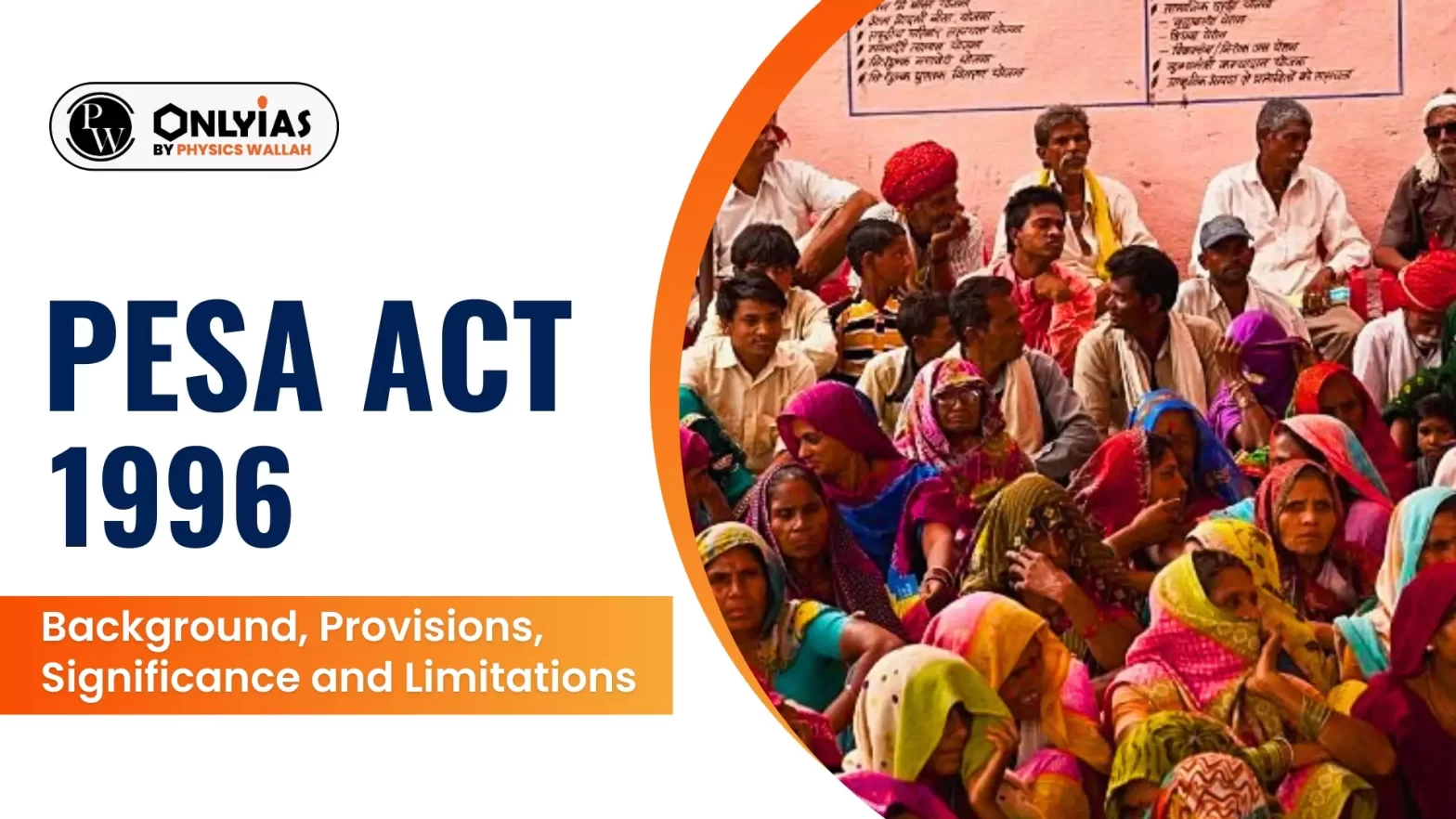![]() 6 Mar 2024
6 Mar 2024

This editorial is based on the news “Secretary Shri Vivek Bharadwaj to inaugurate a Two-Day Regional Conference on the Strengthening of Panchayats Extension to Scheduled Areas Act on 4th – 5th March 2024 at Ranchi, Jharkhand” which was published in the PIB. Recently, a second two-day regional conference was held on strengthening of PESA at Ranchi, Jharkhand.
| Relevancy for Prelims: PESA ACT 1996, Scheduled Areas In India, Panchayati Raj In India, RBI Report On Panchayati Raj Finance, and Smart Gram Panchayat.
Relevancy for Mains: PESA ACT 1996: Background, Provisions, Significance, Limitations and Way Forward. |
|---|
Powers and Functions Given to the Gram Sabhas:
|
|---|
| Prelims PYQ (2016):
Consider the following statements: 1. The minimum age prescribed for any person to be a member of Panchayat is 25 years. 2. A Panchayat reconstituted after premature dessolution continues only for the remainder period. Which of the statements given above is/are correct? (a) 1 only (b) 2 only (c) Both 1 and 2 (d) Neither 1 nor 2 Ans: (b) |
|---|
| Must Read | |
| NCERT Notes For UPSC | UPSC Daily Current Affairs |
| UPSC Blogs | UPSC Daily Editorials |
| Daily Current Affairs Quiz | Daily Main Answer Writing |
| UPSC Mains Previous Year Papers | UPSC Test Series 2024 |

<div class="new-fform">
</div>